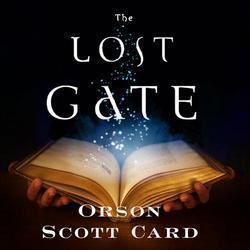What do you think?
Rate this book


12 pages, Audiobook
First published January 4, 2011
Orson Scott Card is a very good storyteller, so even at his worst, his books are still worth reading. That being said, this entire novel felt like a ... prologue. It set up a lot of characters, a lot of history, and a good deal of how this alternative universe works, but not much happens in the story. There is very little action and a ton of discourse. The title character ... is still an adolescent at the end of the novel. He has not yet begun any sort of journey or quest...Here are a few specific thoughts I had about this book: